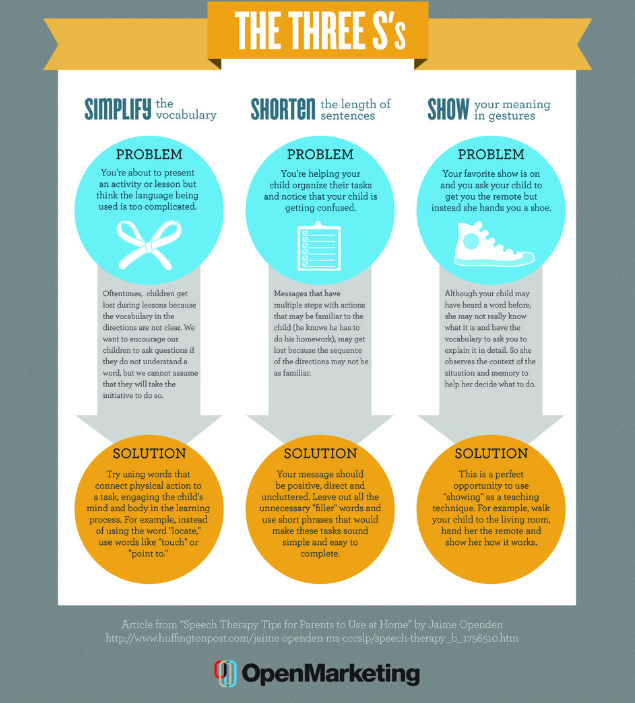What is Speech Therapy and Why Does My Child Need It?
Raising a child can be the most difficult job in the world. And now your child’s teacher or pediatrician has recommended that you have him evaluated by a speech therapist, and suddenly life seems even more challenging. First of all – don’t panic! It’s perfectly natural to be worried, but rest assured that speech therapy can work wonders for your child, if he does indeed have a speech disorder or delay. Work with your child’s speech therapist to integrate speech therapy techniques into your child’s daily routine. One starting point is Speech Buddies University, which offers customized exercises to accelerate your child’s progress.
What Is Speech Therapy?
Speech therapy is a type of treatment that has the aim of facilitating or improving communication. It is a common misconception that speech therapists only work with children with trouble pronouncing certain sounds (such as those with lisps), although that is indeed a common issue. In actuality, speech therapy is a broad field that can address issues ranging from those associated with autism to traumatic brain injuries (TBI).
Why Was Your Child Referred for an Evaluation?
Your child’s teacher or pediatrician might have recommended that a speech-language pathologist (SLP) evaluate your child for a speech disorder or delay. This does not automatically mean that he has a speech disorder. But if he does, having him undergo treatment with speech therapy sooner rather than later can help prevent any adverse effects on his academic progress, social life, and self-esteem.
A child might have an evaluation for a speech disorder for many reasons. The daycare provider might have noticed that he has trouble responding to questions or that he does not make eye contact, for example. (Yup, making eye contact is also under the purview of a speech therapist. It is a type of pragmatic language skill. For more on pragmatic language, check out this ASHA resource.)
Another possible issue that warrants an evaluation is when the child appears to have trouble processing information. That is, he may need help with his receptive language skills. And of course, you may have also noticed that little Jonas has trouble pronouncing certain sounds. He might mix up his “p’s” and “b’s,” for example. (Have you seen the Bob Evans commercial in which the child says “batatoes” instead of “potatoes”? This might be a natural progression of language and the child will grow out of it, or it might be a sign of a speech disorder.)
Learn more about various speech disorders and speech and language issues with the resources from Speech Buddies.
How Can a Speech Therapist Help?
A speech therapist can help your child become aware of the differences of his speech compared to typical speech. Your child might not realize that he is slurring his “s” sounds, for example. He also might not realize that he speaks with an abnormally high pitch or an abnormal rhythm. Becoming aware of the issue is often the first step toward resolving it.
Speech therapists work with a variety of tools and props to help the child correct his speech and language issues. They might use Speech Buddies to correct articulation issues or they might use pretend play with toy people in order to develop conversation skills. There are countless speech therapy techniques that can help your child overcome his speech disorder. It’s always a good idea to collaborate closely with the SLP and discuss ways of incorporating speech therapy techniques into your child’s daily routine at home. As well, ask your SLP about some toys and tools that are particularly good for speech therapy that you can add to your child’s wish list this holiday season.




